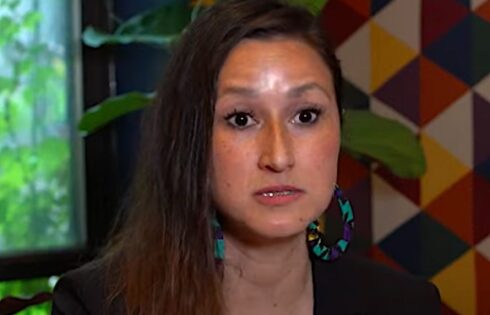The college free speech debate continues apace, with some arguing for a free and open debate environment on campus and others arguing for a more restrictive regime. One scholar has come out to defend free expression in higher education, claiming that free speech “is — or used to be — a central premise of liberalism itself.”
At the University of Pennsylvania, scholar Amy Wax was recently targeted by activists for claiming that “all cultures are not created equal.” The vicious campaign against her, argues Penn professor Jonathan Zimmerman at Inside Higher Ed, is misguided: “[W]e should want everyone to hear what she says,” Zimmerman claims, “so that they can come to their own educated conclusions.
“And the more we vilify her as beyond the moral pale, the less likely that becomes.”
Zimmerman himself disagrees with Wax’s opinions on “bourgeois culture,” but, he claims, “I…think it’s my duty to defend her right to say it, and to plead for a more honest and fair debate about it.” Many of Wax’s critics, he writes, “don’t want to hear” Wax’s responses to their objections; furthermore, “they don’t want the rest of us to discuss her claims, either.”
The controversy surrounding Wax’s writing, Zimmerman points out, was missing one crucial aspect: “[A]lmost nobody was asking what she actually wrote, or what she meant; those questions, apparently, had been asked and answered.”
What’s to discuss, really? Witness a recent statement signed by 54 Penn students and alumni, which called on Penn’s leaders to denounce Wax’s op-ed as “racist and white supremacist.” It also demanded a university investigation into Wax’s “advocacy for white supremacy.” The goal here isn’t to foster an honest discussion of Wax’s argument; instead, it’s to foreclose that possibility.
A statement signed by 33 Penn law professors struck a more temperate chord, affirming Wax’s right to express her opinions. So did several other posts by concerned faculty, who carefully critiqued Wax’s argument instead of simply demonizing her. But the law school statement concluded by encouraging students to complain if they encounter “bias or stereotype” in their classrooms, which sounded more like an invitation to report Wax than to engage in real debate with her.
And debate should be our shared goal, no matter where we stand. Even though she got her history wrong, Amy Wax’s column touched on some of the most important and contested questions in contemporary American politics and social science. Is poverty caused by structural or cultural factors? How do family patterns affect life outcomes? And what is the role of racism in limiting opportunities for people of color?…
To be sure, as the tragic events in Charlottesville, Va., reminded us, some attitudes and opinions are simply so reprehensible that decent people must denounce them out of hand. If a colleague wrote a column praising neo-Nazis, I wouldn’t be pleading for an honest discussion of it. I’d be storming the barricades with everyone else, demanding that she be purged from our intellectual and moral community.
But to connect what Amy Wax wrote with the hate on display in Charlottesville — as some of her critics have done — is reprehensible, too. It turns white supremacy into a rhetorical weapon, which you can turn against anyone or anything that angers, offends or repels you. And it creates a culture of fear, which is anathema to the free exchange of ideas. You can’t make things right when everyone is looking over their shoulder, wondering if they said the wrong thing.
“[I]f you still think that Wax should be read out of our community,” Zimmerman writes, “watch out! One day you might find yourself on the receiving end of a similar campaign.”
Like The College Fix on Facebook / Follow us on Twitter




Add to the Discussion